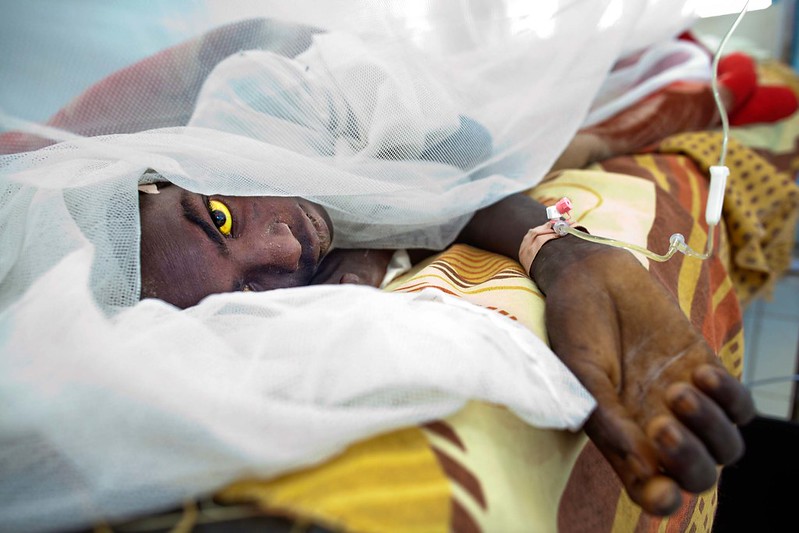There are about 500 cases of yellow fever in Nigeria annually – WHO
What is yellow fever?
Yellow fever is an acute viral haemorrhagic disease transmitted by infected Aedes aegypti mosquitos common in tropical regions of the world including Nigeria. It is characterised by jaundice and yellow skin hence the name.
What are the symptoms of yellow fever?
These are common symptoms of yellow fever.
- Fever
- Headache
- Vomiting
- Nausea
- Fatigue
- Jaundice
- Muscle Pain
Yellow fever symptoms develop between 4 to 6 days after infection and can be mistaken for malaria fever or other topical ailments. In a large number of people, these symptoms would go away after 3-4 days when managed properly. But in some very few cases the fever returns after it goes away more severe with jaundice and bleeding through the nose. 50% of this second phase may end up being fatal.
Who is at risk of yellow fever?
Anyone who is not vaccinated against the yellow fever virus is at risk of being infected with the virus. People who stay or are visiting endemic regions of yellow fever who do not take the vaccine are most at risk of getting infected with the virus.
How can yellow fever be diagnosed?
In the early stage of infection, it is sometimes difficult to detect yellow fever as its symptoms are similar to malaria or other haemorrhagic fevers. But polymerase chain reaction (PCR) can be used to test blood and urine and it has in some cases proven successful in detecting yellow fever in the early stages. In later stages, testing to identify antibodies is required (ELISA and PRNT).
How is yellow fever transmitted?
The primary vehicle for transmitting the yellow fever virus is the Aedes aegypti mosquitos. They get infected when they bite monkeys in the jungle which are the primary reservoir of the yellow fever virus. After getting it from the monkeys, they spread it from monkey to monkey and sometimes human whom they come in contact within the jungle. This is known as Salvantic or jungle yellow fever.
These people get into populated areas where immunity and vaccination are low with dense mosquitos. And the mosquitos get infected and spread it to a larger population in cities and urban areas. This is referred to as urban yellow fever.
How can yellow fever be treated?
Yellow fever has no cure, but when an individual is infected, the symptoms can be managed in order to help ease discomfort.
How can yellow fever be prevented?
The most efficient way to prevent yellow fever is Vaccination, the yellow fever vaccine is safe and a single dose can protect an individual for life. Although it is important to know that not everyone can be vaccinated for yellow fever.
Who cannot be vaccinated for yellow fever
- Infants under 9 months.
- Pregnant women.
- People with severe immunodeficiency due to ailments like HIV/Aids or cancer.

